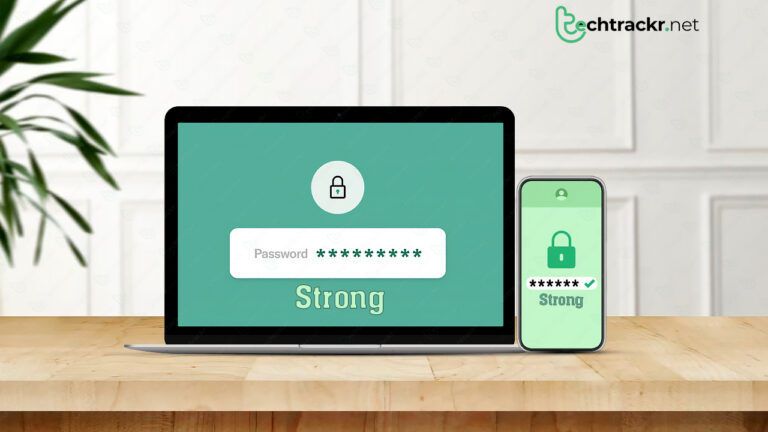
Every May 7th, organizations worldwide make a big deal about reminding folks to have strong passwords. But now that remote work is the usual scene, and there’s a ton of digital info flying around, it’s time for everyone to make strong passwords a priority all year.
Even though there’s a lot of talk about data security, many folks still go with weak passwords for their work and personal stuff. According to Google, 24% of people have gone for classics like “password,” “Qwerty,” or “123456” as their password, and only 34% bother to switch things up frequently.
How to create a strong password
Those cyber crooks are aware of the fact that most folks come up with easy-to-remember passwords and tend to use the same one for multiple accounts. That means if they crack into one account, they’ve pretty much hit the jackpot for the rest.

Take a couple of minutes to check out these seven smart tips for strong passwords. If any of your accounts don’t meet these guidelines, go ahead and whip up some new passwords.
- Avoid using consecutive numbers or letters in your password.
- Steer clear of incorporating your birth year or birth month/day into your password.
- Create a password with a mix of at least eight letters, numbers, and symbols.
- Blend unrelated words in your password or passphrase.
- Avoid using names or words directly from the dictionary.
- Leverage a password manager to securely store your passwords.
- Refrain from reusing your passwords across different accounts.
Also Read: How to build a gaming PC: Simple tips and tricks
Information that shouldn’t be included in a password
- The name of your beloved pet.
- Birthdays, either yours or those of your family members.
- Words associated with your hobbies, profession, or passions.
- Components of your residential address, such as city, street, house/apartment number, or country.
- Your own name or the names of your family members.
Bad actors on the internet go through the process of snooping around your online presence to find hints that can aid them in hacking your password. They exploit any information they can gather about you, including your location, interests, and family details, to strategically guess your password.
If any of your passwords are based on personal info, just take a couple of minutes to update them using our tips for creating strong passwords.

How to keep your password safe
Lots of websites, apps, and tools these days let you sign in with your Facebook, Twitter, Instagram, or other social media accounts. It’s handy because you don’t have to bother coming up with a new username and password. But, be aware, going this route puts you at risk if there’s a data breach on the social network side. If a hacker gets hold of your Facebook login info, they can get into all the other sites, apps, or tools where you’ve used Facebook to sign in.
Don’t use the same passwords over and over, and switch them up regularly. Even if you’ve got a super-strong password, avoid using it on different social networks, websites, and apps. Make life easier by using a password manager to keep track. If your IT/support crew hooked you up with one, use it to store all your personal and work-related passwords.
Most importantly, stay skeptical and careful. Don’t fall for emails telling you to reset your password; no legit company sends out random password reset requests. If you’re unsure about a friend request or chat message, just ignore it and hit up your friend through email or text to check if they sent it.
Also Read: How to speed up your Windows PC with these simple hacks
Simple trick to remember your password
So, with all these suggestions urging you to come up with unique, strong passwords for all your different accounts, you might be wondering how on earth you’ll remember them all. Well, here are some tricks to help you out.
Here’s a super effective way to make a strong password that’s also easy to keep in your head. Instead of a single word, try linking a few words to make a phrase or sentence. Like, instead of just “password,” go with something like “My password is super strong!”
Got a poem stuck in your head or one that means a lot to you? Grab a line from it and turn it into your password. Just a heads up, switch out some letters for symbols or numbers to throw off any hackers.
